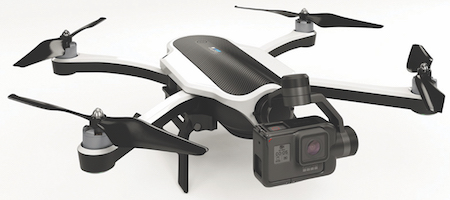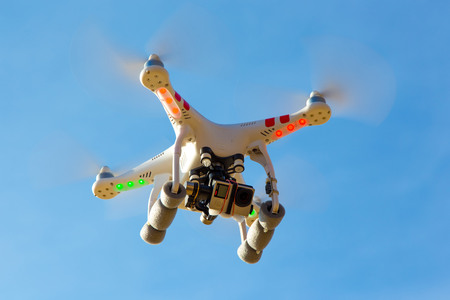GoPro Bows Out
GoPro’s exit follows a turbulent time for the popular action camera company which entered the drone market with the super portable Karma in late 2016. It was a move seen as an attempt to directly compete with the leader DJI, which had just launched the Mavic Pro, with a similar focus on portability. There were high hopes that the Karma would reinvigorate GoPro’s profitability. However, it was beset by problems with recalls announced due to reports of the drone falling out of the sky. It was relaunched in early 2017 but failed to gain a foothold on the market and was ultimately unable to dislodge DJI’s place.
GoPro has faced claims from investors – with law firms such as Scott+Scott, Attorneys at Law acting on their behalf – that GoPro had made misleading statements that the Karma had not sold as well as projected, leading to a dramatic slashing of prices.
GoPro officially announced it was exiting the drone market in January 2018, selling off its remaining Karma products, announcing significant layoffs, and CEO Nicholas Woodman reduced his salary to $1 to help the company find its feet again. In a statement, GoPro has claimed the competitiveness of the market has led to this removal, whilst also citing the regulation the company dealt with in Europe and the United States as hostile and likely to reduce the total addressable market in the years to come. As the company restructures at great cost, it says it will focus instead on its core line, action cameras, and innovation in those areas.
DJI's Security Woes
Chinese drone maker DJI suffered a crisis last summer when news broke that the US Army planned to discontinue use of the company’s products. Based on studies run by the Army Research Laboratory and by the Navy, cyber vulnerabilities in DJI’s equipment were highlighted as the reason for the decision, sending a shockwave through the drone community and threatening to undermine DJI’s hitherto reliable image.
DJI’s immediate response was to offer full cooperation into examining these vulnerabilities as well as introducing a new privacy mode on its systems. The Local Data Mode promised to stop internet traffic to and from its DJI Pilot app and to provide enhanced data privacy assurances for sensitive government and enterprise customers, as part of an effort to appease its global customer base. This was followed by a report reviewing its internal security practices – all very public attempts to correct the damage to its image in a culture where reputation is of utmost importance. US-Sino relations also had the potential to be affected by any fallout from DJI’s interactions with America, hence the seriousness which the company treated this potential damage to its image.

DJI's Mavic Pro drone / DJI
New Product
After taking rapid action to counter its troubles, DJI has bounced back with the release of its latest machine, the Mavic Air. DJI has long been seen as the best bet for anyone serious about buying and flying a drone – being the provider of the more expensive models, cutting out the casual hobbyists and targeting the Pro or Prosumer market. The Mavic Air is a much more affordable product, giving DJI access to all price levels of the market.
Previously, the cheapest model was the Mavic Pro, costing around $1000, followed by the release of the Spark at $400 (originally $500). The Mavic Air, at $800, gives consumers more options if they are not prepared to invest $1,000 into a drone. While there are plenty of drones that are considerably cheaper, they are not able to compete with the extra safety and ease of flying features provided by DJI. Other Chinese companies, such as Yuneec, have also not been able to compete domestically with DJI, despite their efforts to provide a diverse line of drones. Even though it took a public relations hit last summer, DJI has proved that it has staying power in the Pro drone market.


.jpg)
.jpg)
.jpg)

.jpg)




.jpg)